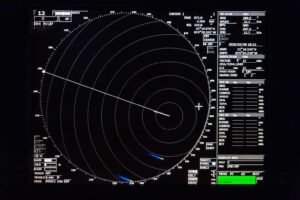AI Experts Predict Minimal Impact of AI Tools on Job Losses [Infographic]
![AI Experts Predict Minimal Impact of AI Tools on Job Losses [Infographic]](https://deepmind.blog/wp-content/uploads/2025/04/AI-Experts-Predict-Minimal-Impact-of-AI-Tools-on-Job.webp.webp)
Understanding the Impact of AI on Employment
As artificial intelligence (AI) technology continues to improve, many people worry that it could replace human jobs across several sectors. However, AI experts tend to have a different perspective, viewing these tools as enhancements for human productivity rather than direct replacements.
The Role of AI in Enhancing Human Work
AI is increasingly integrated into various industries, with the potential to automate repetitive tasks and improve efficiency. Here are some key areas where AI is making a difference:
Automation of Routine Tasks: AI can manage routine functions such as data entry and customer service inquiries. This allows employees to focus on higher-level responsibilities and creative problem-solving tasks.
Data Analysis: AI can process vast amounts of data quickly, providing businesses with valuable insights that can inform decision-making. This can lead to better strategies and enhanced operational performance.
- Creative Processes: In fields like marketing and design, AI tools are being used to spark creativity. For example, AI algorithms can generate design ideas or suggest content topics based on current trends.
Public Concerns vs. Expert Insights
A study conducted by Pew Research Center, referenced by Statista, highlights a disparity between public concerns about AI and the views of experts in the field.
Key Findings Include:
Impersonation Concerns: The general public is worried about AI’s ability to impersonate individuals and misuse personal information. Conversely, AI experts feel these issues are manageable and that systems can be developed to mitigate risks.
- Impact on Personal Connections: Many people fear that increased use of AI will erode personal relationships. However, experts believe that AI will not diminish human interactions but will instead enable people to connect more efficiently.
These findings indicate that while there are valid concerns about AI, experts see its integration into society as more beneficial than harmful.
The Future of AI in Workplaces
Given the rapid advancements in AI, what can we expect in the future regarding its relationship with human workers? Here are a few predictions:
1. Collaboration Over Replacement
Rather than replacing humans, AI is poised to serve as a collaborative tool. Workers will likely leverage AI to enhance their skills and improve outputs, fostering a workplace environment where humans and machines coexist.
2. Emergence of New Jobs
As some roles become automated, there will be a growing need for professionals who can manage and develop AI technologies. This shift may lead to the creation of entirely new job categories focused on AI oversight and maintenance.
3. Upskilling and Training
Companies will need to invest in training their employees to work alongside AI technologies. Upskilling will be essential to ensure that workers feel confident in utilizing new tools and adapting to changing job landscapes.
4. Specialized AI Roles
Industries will require specialists to manage AI systems effectively. This demand will include data scientists, AI ethicists, and AI trainers, among others, as organizations seek to harness the full potential of AI technology.
As technology evolves, it’s essential to stay informed about how AI can shape the workforce. For those interested in exploring more about public opinions on AI usage and its implications, you can access the full report on Statista or check the original research by Pew Research Center.
By viewing AI as an enhancement to human abilities rather than a threat to jobs, we can better prepare for a future that integrates these advanced tools into our daily work.






